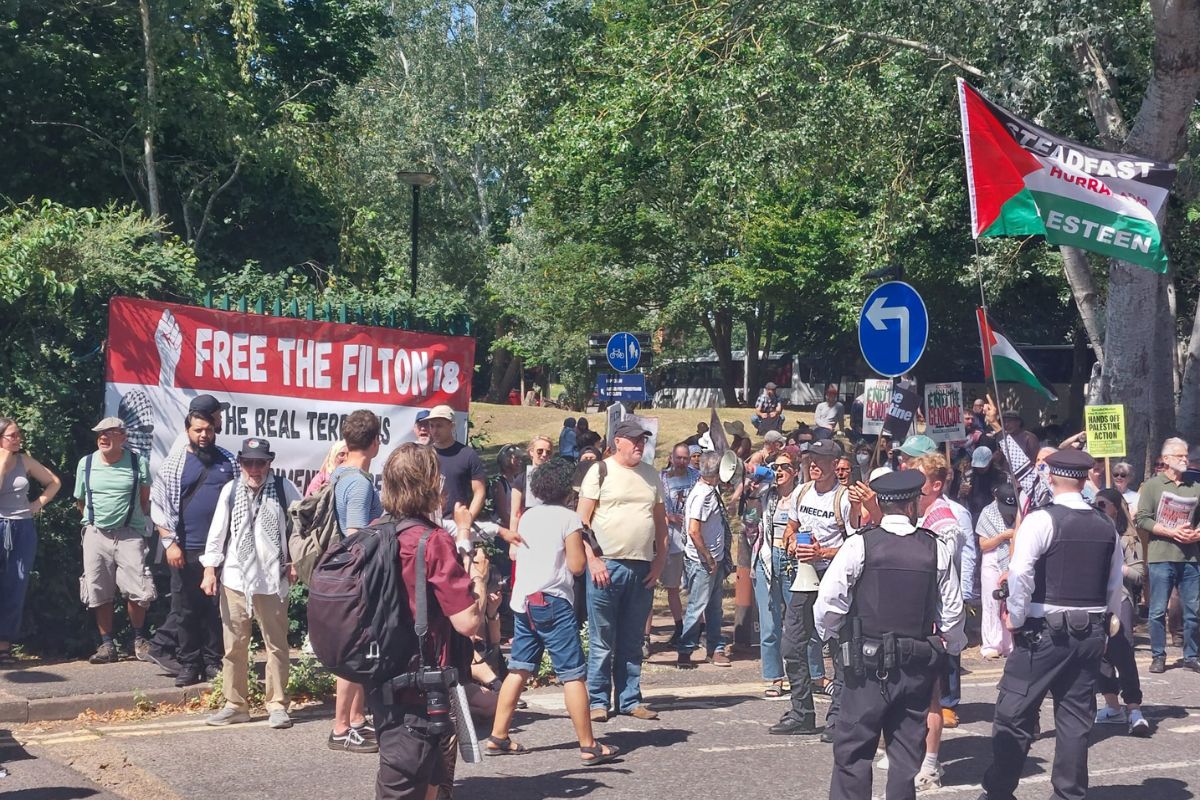The events of the past year or so, financial meltdown, political instability,
uncertainty over jobs and the threat that many workers could lose their homes
represents a huge shift in society, both internationally and especially in
Britain where the effects of the “credit crunch” have been particularly acute.
In the context of such a deep crisis the halcyon days of the “feel good factor”
and the “15 years of unbroken economic growth”, seem like ancient history.
The
effects of this crisis are very complex and the political repercussions will
take years to play out fully. Indeed recent economic information indicates that
the real economy is about to be hammered by the crisis, approximately a year to
18 months after the onset of the sub prime mortgage crisis in the US. The US
economy is now losing jobs faster than at any time in the last three decades.
Twenty five thousand Woolworth’s workers are about to get made redundant –
“that’s the wonder of”………………… world capitalism. Sony is set to lose 16,000 jobs
and Rio Tinto 14,000. Unemployment rose by 533,000 in November alone in the US.
As
we’ve often explained before, parliament with all its trappings sits on top of
society like the superstructure on a ship and the Labour leaders are subject to
enormous pressures from all classes in society. Gordon Brown sitting in the
crow’s nest has looked particularly green as the crisis has thrown him into the
maelstrom. The speed of events has vastly increased and the depth of the crisis
has meant that there have been rapid shifts in policy and perspective as the
bourgeoisie have clammered for billions to shore up their system.
From
the point of view of Marxism, however, what is decisive is the effect that the
crisis has on the working class. How will workers respond to the crisis? What
will be the effect on the class struggle? Is it possible to accurately predict the
likely course of events or is it the case that the crisis means that all bets
are off and that it’s every man for himself and the devil take the hindmost.
To
examine what sort of response the working class is likely to make to the
current crisis it’s important to consider what the situation is like on the
shop floor? As we have explained elsewhere, “Millions of workers face
short-time working, cancellation of overtime or sackings and closures. The
bosses are demanding wage cuts, under threat of closure. This means a general
reduction in living standards, which in turn means a new fall in demand, with
more closures, unemployment and new cuts.” The
crisis of world capitalism is gathering speed – Marxist.com.
What
about the change in worker’s political consciousness? It’s obvious that there
is a real change in the mood and many workers are looking for answers to the
situation they find themselves in. The contradictions within capitalism are
very clear to see at the moment, the financial crisis and the effects on the
real economy are forcing many workers to question the system and the way it
works.
The
short answer is that both these observations are entirely correct. However, the
effect of the crash on the class struggle is more complex. From a bourgeois
point of view and from an accountant’s point of view, balance sheets have to be
balanced, profits have to continue to be made and more than anything else the
working class has to pay for the crisis. So shops and factories are shutting
down, lines are closing because there are huge piles of unsold goods on the
shop floor, there’s no overtime and so on.
How
will workers respond? Trotsky pointed out in his article “The third period of the Comintern’s errors”, which was written in
1930 around the time of the Wall Street Crash that instead of automatically
leading to radicalisation, the effect of big economic events was to open up a
new cycle of events and a new period of sharp and sudden changes resulting in
rapid changes in the psychology of all classes. He explained that the course of
development of the class struggle was rooted in the preceding period and that:
“In discussing the radicalization of the masses, it should never be
forgotten that the proletariat achieves "unanimity" only in periods
of revolutionary apex. In conditions of "everyday" life in capitalist
society, the proletariat is far from homogeneous. Moreover, the heterogeneity
of its layers manifests itself most precisely at the turning points in the
road. The most exploited, the least skilled, or the most politically backward
layers of the proletariat are frequently the first to enter the arena of
struggle and, in the case of defeat, are often the first to leave it. It is
exactly in the new period that the workers who did not suffer defeats in the
preceding period are most likely to be attracted to the movement, if only
because they have not yet taken part in the struggle”
The position in Britain over the last two decades has been of a low
level of strikes, a relatively empty trade union movement and a virtually empty
Labour Party. Under these conditions the bureaucracy has held sway by and large
and has held back the movement. However as we have seen over the last couple of
years there has been a marked increase, particularly in the public sector in
strike action, although the character of this has been fairly disjointed and
has fallen short of the “united coordinated action”, that was being heralded by
the trade union leaders. Trotsky faced a similar position in respect of a
discussion inside the French CGTU (Trade Union Federation) where the Stalinists
took an ultra left line against the syndicalists who argued that the workers
were not moving towards radicalism:
“As a matter of fact, these figures testify not only that a new cycle of
proletarian struggle has begun, but also that this cycle is only in its first
stage. After defeat and decline, a revival, in the absence of any great events,
could occur only in the industrial periphery, that is, in the light industries,
in the secondary branches, in the smaller plants of heavy industry. The spread
of the strike movement into the metal industry, machine shops, and
transportation would mean its transformation to a higher stage of development
and would indicate not only the beginning of a movement but a decisive turn in
the mood of the working class. It has not come yet. But it would be absurd to
shut our eyes to the first stage of the movement because the second stage has
not yet begun, or the third, or the fourth. Pregnancy in its second month is
pregnancy. Forcing it may lead to a miscarriage, but so can ignoring it. Of
course, we must add to this analogy that dates are by no means as certain in
the social field as in physiology.”
We correctly pointed out over the summer that the contradictory moods
within sections of the public sector unions reflected the fact that many
workers had “bigger fish to fry” and were unenthusiastic about strike action at
that point over pay restraint. But it would be wrong to think that this
necessarily means that the working class will remain passive for long.
Although the last few years have been quiet on the industrial front and
as we’ve pointed out many workers have no first hand experience or even memory
of the miner’s strike and the waves of industrial struggle in the 1970’s it
also true to say that there have been very few major defeats over the past
several years and that as such the working class has been strengthened.
It is wrong to assume that the workers will just be “stunned” into
inactivity by events, although it has to be said that the financial crisis has
resulted in a sharp intake of breath for many workers and to personal tragedy
and misery for those who have lost their houses and their jobs. But, as Trotsky
explained the crash has begun “a new cycle” in British politics, and in the
class struggle.
In the current
situation, it’s most likely that there will be defensive struggles and further
demands for nationalisation and bail outs of companies. But there is no such
thing as a final crisis of capitalism, it is senile and decayed yes, but it
needs to be overthrown. As Trotsky explains:
“But leaders who wish to begin only when
everything is ready are not needed by the working class. One must be able to
see the first, even though weak, symptoms of revival, while only in the
economic sphere, adapt one’s tactics to it, and attentively follow the
development of the process. Meantime one must not even for a moment lose sight
of the general nature of our epoch, which has proved more than once and will
prove again that, between the first symptoms of revival and the stormy upsurge
that creates a revolutionary situation, not only forty years but perhaps a
fifth or a tenth of that are required.”
On a world scale the political and social implications of the crisis
will be profound and will play out in an uneven fashion. In Greece where there
have been 10 general strikes since the Nea Demokratia (Tories) came to power
and the youth have been fighting the police on the streets, the political
consequences are very apparent.
The task of the Marxists is to learn from history and to study the class
struggle as it develops on an international scale. Trotsky explained in the
same article that the tempo of the class struggle can be importantly affected
by the stage of development of the Marxist tendency in each of the countries.
Our task is to explain events and to begin to arm the best of the youth and the
most advanced workers with the ideas of Marxism, ideas that can change the
world.






